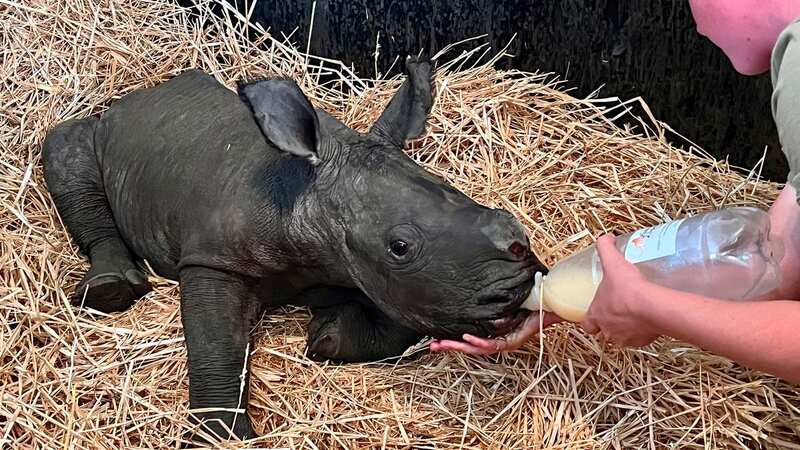'Orphan rhinos taken to secret location after cruel slaughter of mothers'

One rhino is poached every day in South Africa – part of a cruel trade that leaves behind orphaned calves crying out for their slaughtered mothers.
Since 2008, around 1,200 rhinos have been killed every year for their horns. Experts warn if the poaching continues at its current level, the species will soon be hunted to extinction. In the first half of the year, 62% of them were killed in KwaZulu-Natal, 300 miles south of Kruger National Park.
Zululand Rhino Orphanage was set up in 2012 as the only dedicated regional home for orphan rhinos – and baby hippos too – in KwaZulu-Natal. It is operated by a dedicated team who provide 24-hour care to all the orphans at a well protected and secret location.
Downton and Ever Decreasing Circles actor Peter Egan is a patron of the orphanage and travelled to South Africa to film a new documentary on their work. He explained how it has so far protected more than 1,000 rhinos. Its goal is to return all the orphans back to the wild.
Founder Simon Jones set up the orphanage in 2012 after rhinos were targeted on the Kariega game reserve in the Eastern Cape. When they were found, one was dead but two, now known as Thadi and Temba, survived. Both had holes in their faces and skin hanging off where machetes had hacked away to get every last bit of horn that they could.
 Fears over Brexit 'backdoor' for trophy hunters to bring home sick souvenirs
Fears over Brexit 'backdoor' for trophy hunters to bring home sick souvenirs
Simon said: “That was the final push for me to say, OK, enough’s enough.” Just like pangolin flesh and scales, rhino horn is made of keratin, the same substance as human fingernails. It is hailed as a remedy in traditional Asian medicine for everything from hangovers to fevers and even cancer – although there is no scientific evidence to back it.
Horn is also bought and consumed purely as a symbol of wealth. A whole rhinoceros horn could net the poachers a profit of up to £15,000. Simon added: ”With so many rhinos lost to poachers, over 7,000 in the last 10 years, every life matters as we work to save one of Africa’s most iconic species.”
- Visit helpingrhinos.org for more on the sanctuary. Peter Egan is hosting the Global Gala for Rhinos on September 30 in London and streaming live at
helpingrhinos.org/globalgala2023
Read more similar news:
Comments:
comments powered by Disqus

































